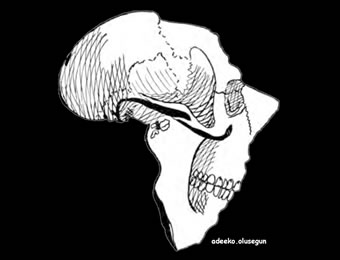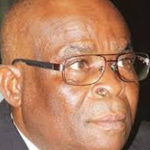My vision is to ensure that my twenty-two-year pregnancy for Africa gives birth to young and dynamic visionary leaders that will elicit new political ideology, educational growth, industrial advancement, political stability, provision of constant supply of electricity and security among other dividends of good governance for an enviable continent where other peoples of the world would want to reside.
A house divided: Why strike is not fully implemented in OAU
It is right to say that the quality of leadership is important for Africa to rise up and take its rightful place. Objectively, Youthocracy will be a driving strategy to attaining lasting development through the injection of new political ideology by the youth.
Africans should liberate themselves from the primitive thought of embracing rotational system of government that yields tribal and endemic political control of power.
Conversely, having painstakingly studied political strategies in Africa, I discovered that Africa has three groups of leaders that have been presented within three generations. Generation one: those that led in the 50s and 60s, like Nelson Mandela of South Africa, Obafemi Awolowo of Nigeria, Kwame Nkrumah of Ghana, Julius Nyerere of Tanzania. The legacies they left were that they fought for independence; they freed us from colonialism and were commended for their efforts. They were followed by generation two that wreaked havoc on the continent.
Presently, Africa’s increasing wealth and economic liberation has brought up a new breed of businessmen that do not rely on political connections and thus are able to raise their voices
against abuses in their country in the likes of Aliko Dangote, Folorunsho Alakija and Mo Ibrahim, the Sudanese billionaire philanthropist.
I am not happy as Africa has for about four decades become a laughing stock among comity of nations; some of its leaders are more than 90 years while others are just beginning new terms in office. Where do they want to lead the continent to?
Most African leaders are by nature greedy for power. It has become obvious that the external influence which was thought to be responsible for the misbehavior of African leaders was in fact not responsible for Africa’s misfortune over leadership. What are the factors behind this irrational quest for power and the unwillingness to relinquish same? Insecurity of life outside power, economic gains, political influence and more are some of the factors that have kept genuine democracy away from most African countries.
There are 54 independent countries in Africa and 90 per cent of their presidents are between the ages 70 and 95. Here are some of them, their country and age as at 2017.
Every progressive minded young African should be angry about the gerontocratic nature of our governance. But that is not enough; the youth must also wake up from their slumber because power is not easily attained; one must struggle for it. Power will not get to the youth on a platter of gold. They must come out of their cocoons and begin to make sacrifices in search for power. We must all pay attention to grooming the set of generation of youthful leadership in a strategic succession plan for Youthocracy to ensure pragmatic development through leadership generational shift in Africa.
Tunde Eso,
Osun State.






